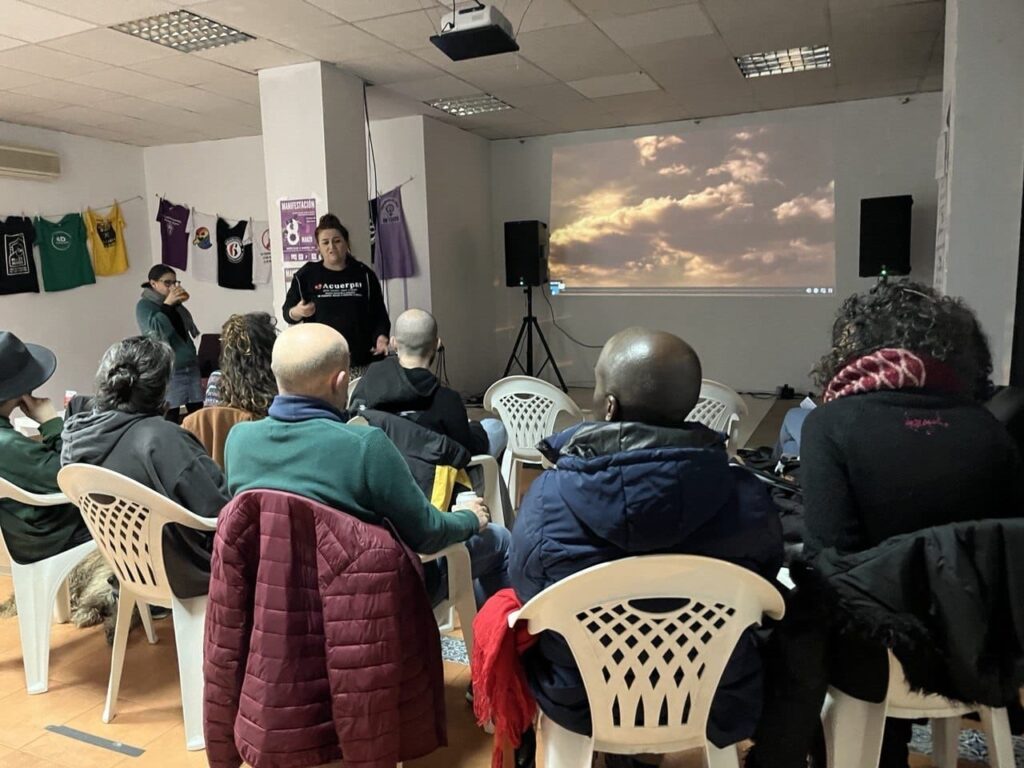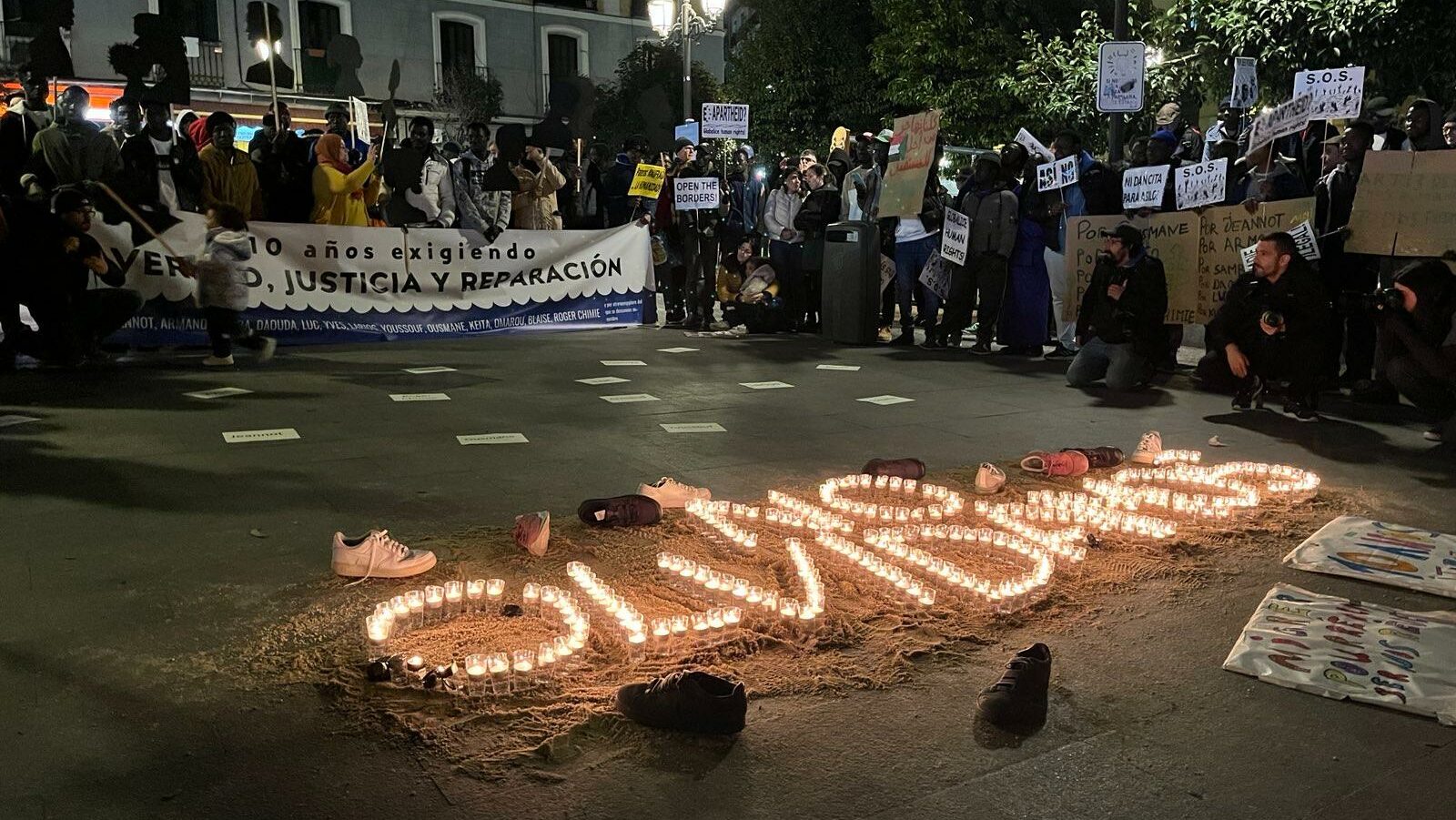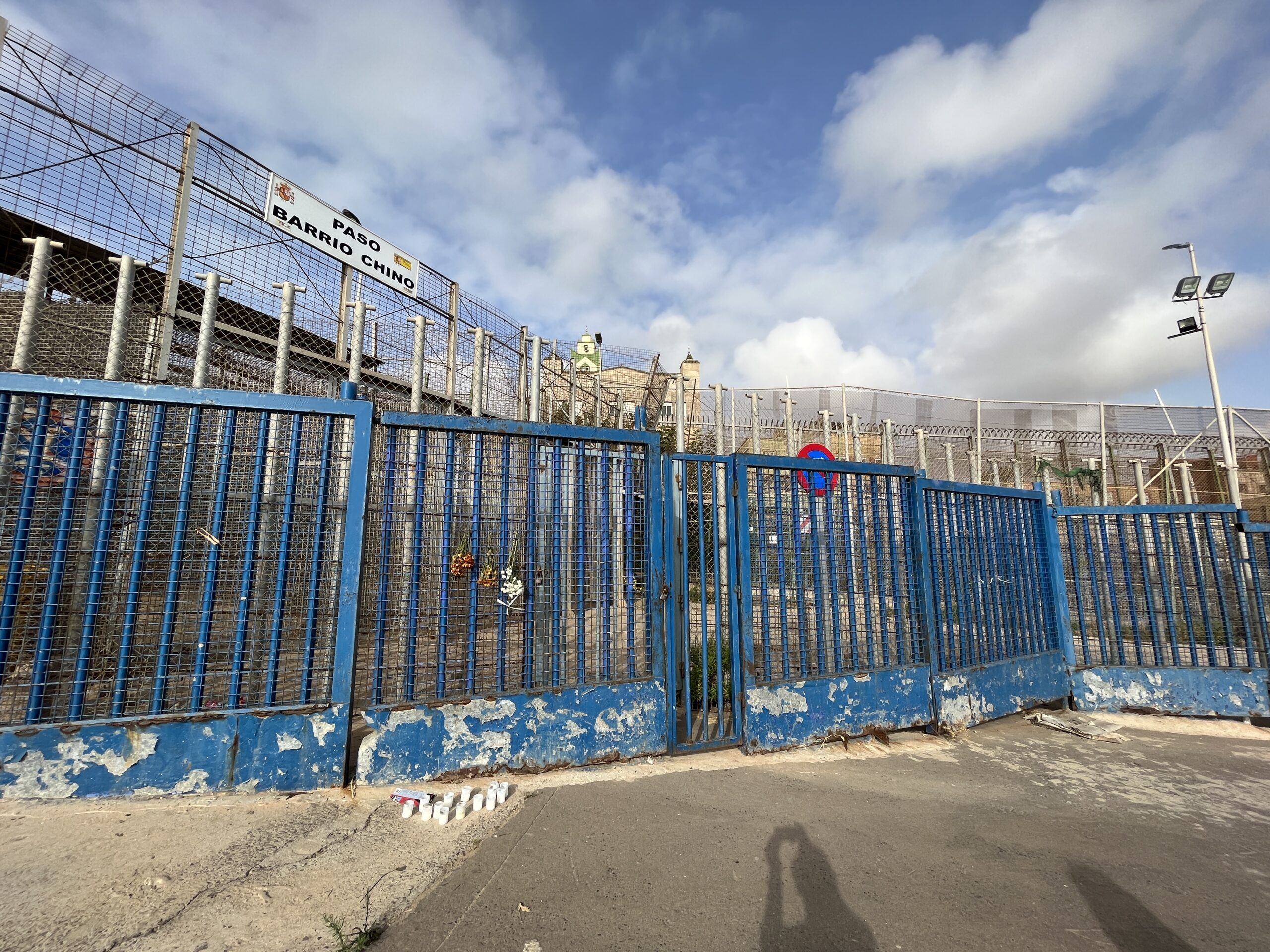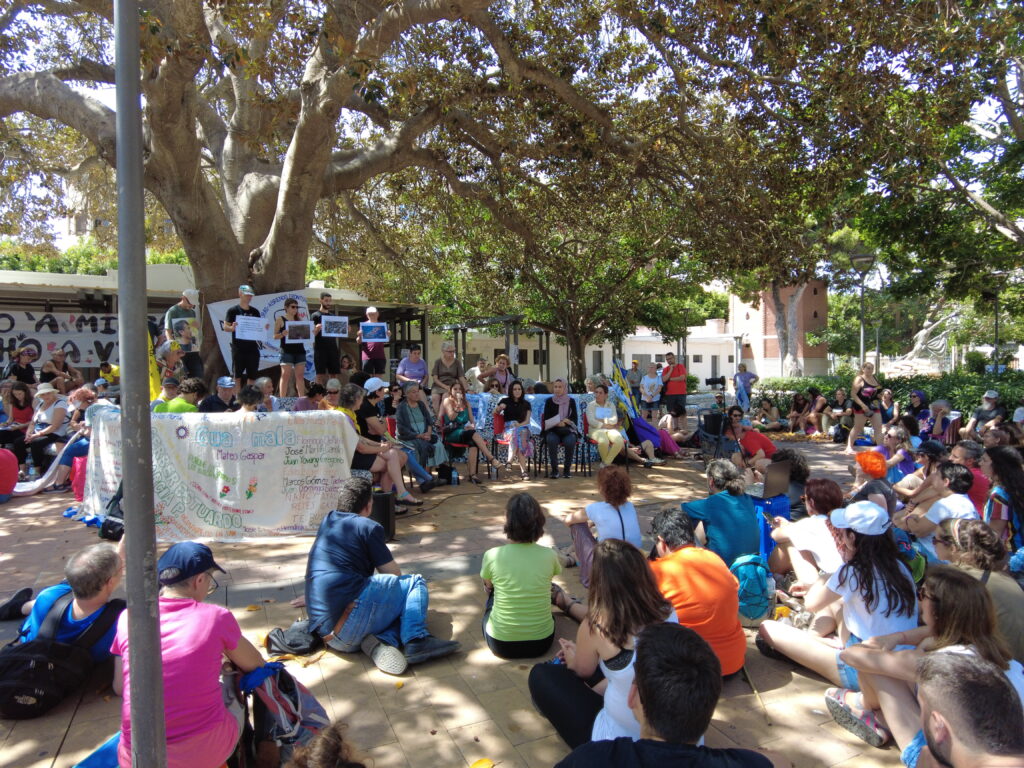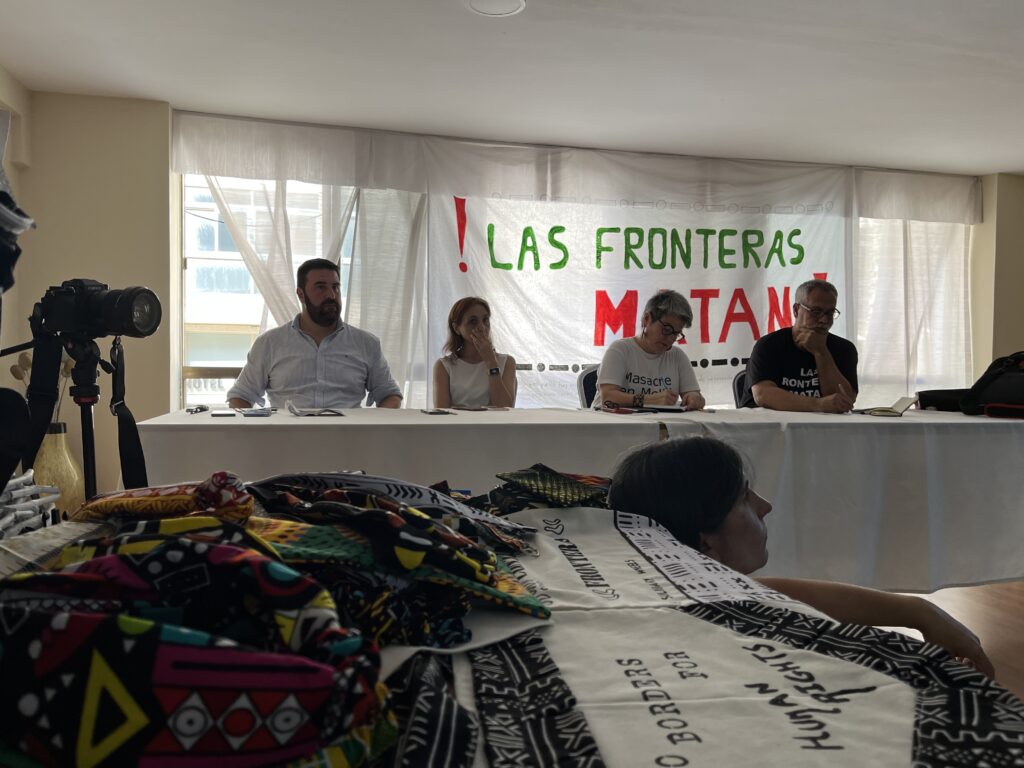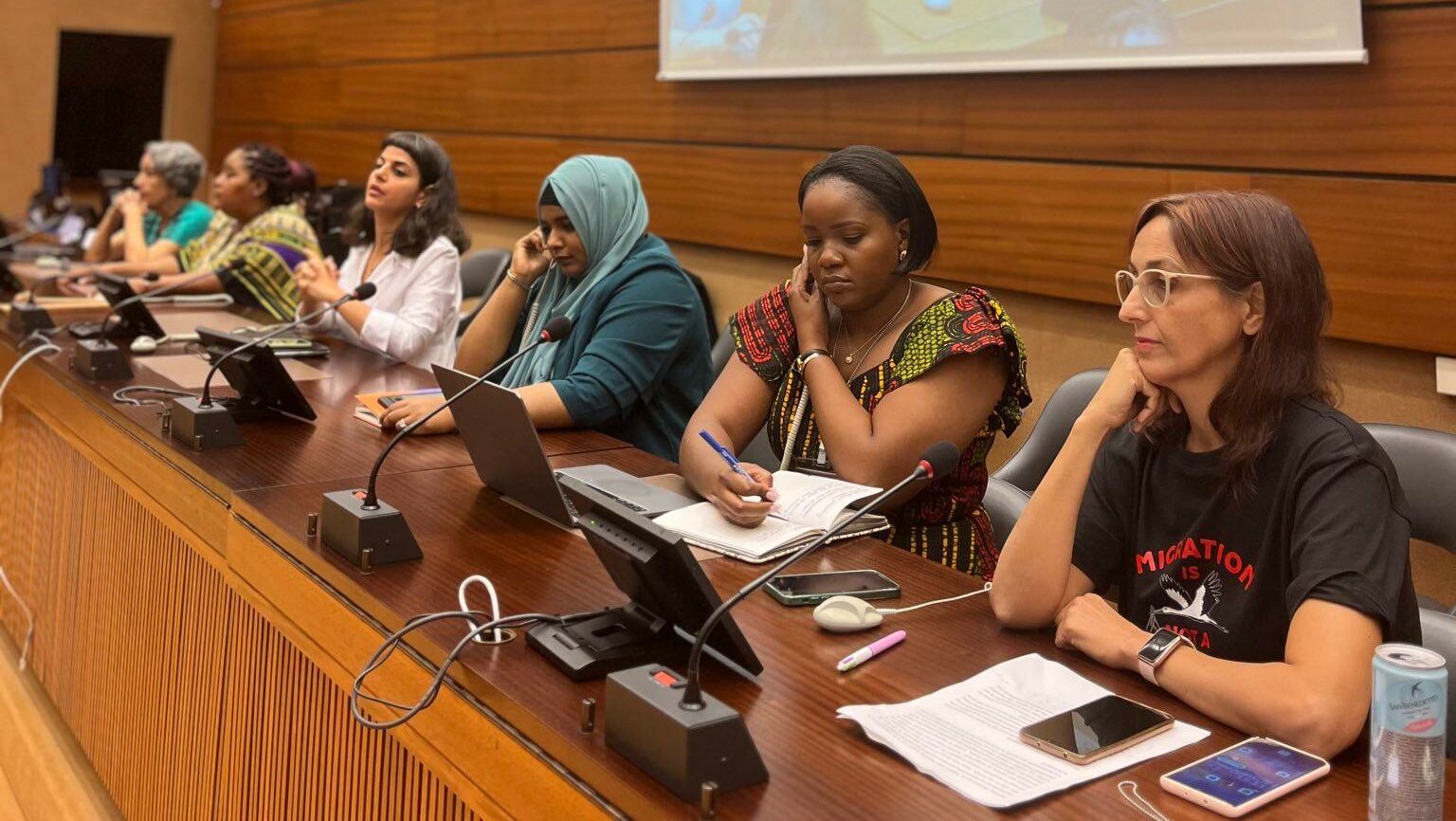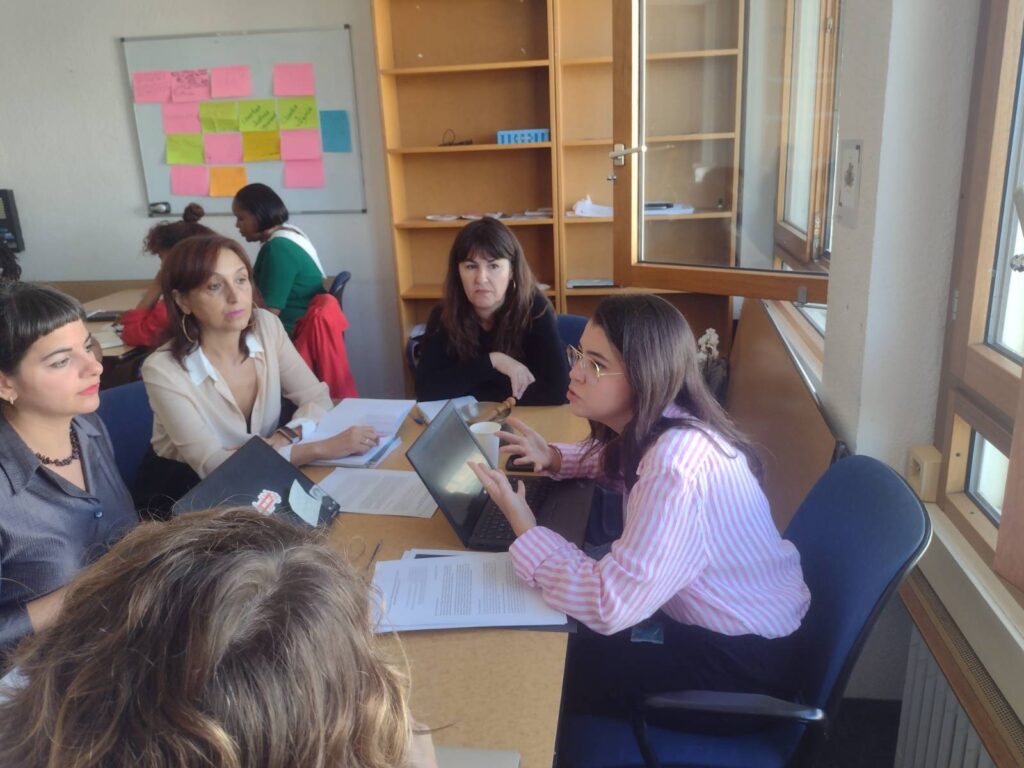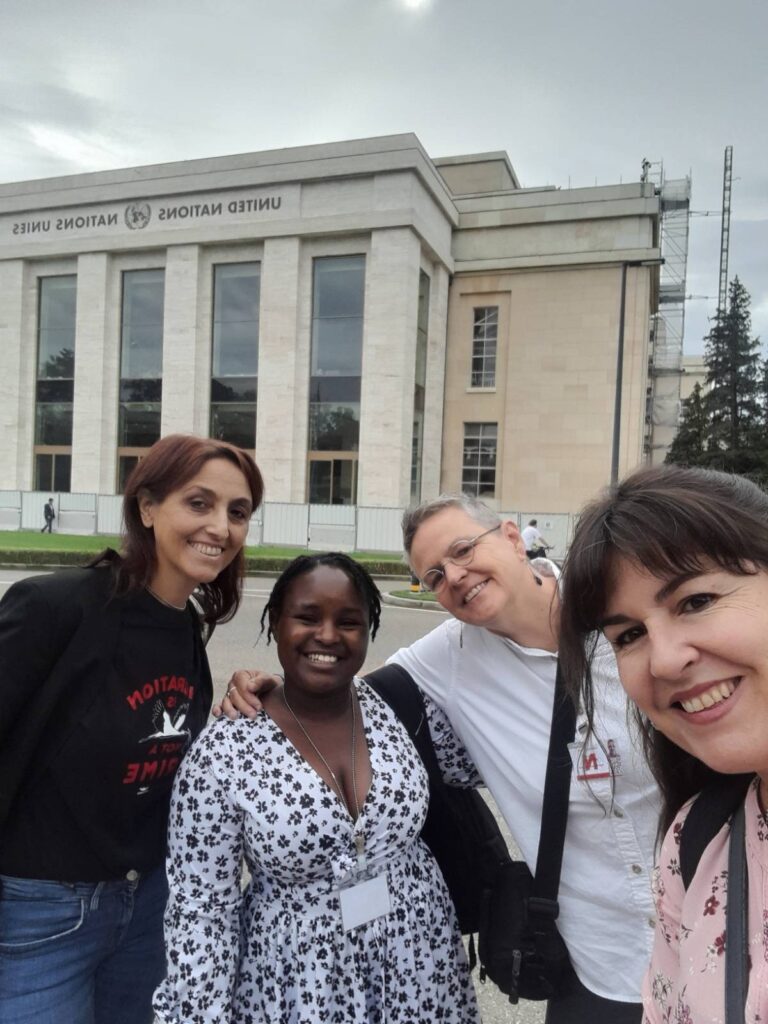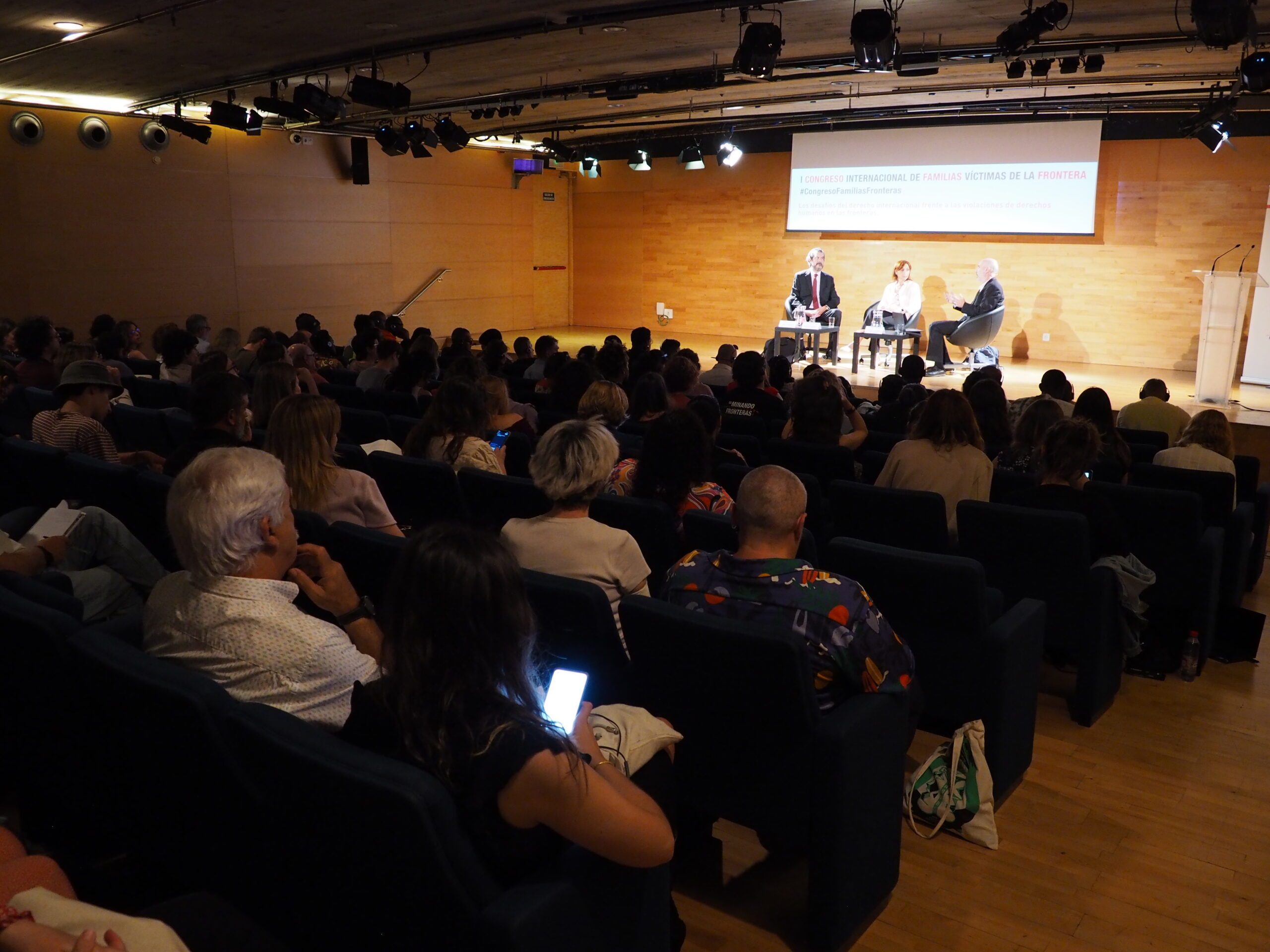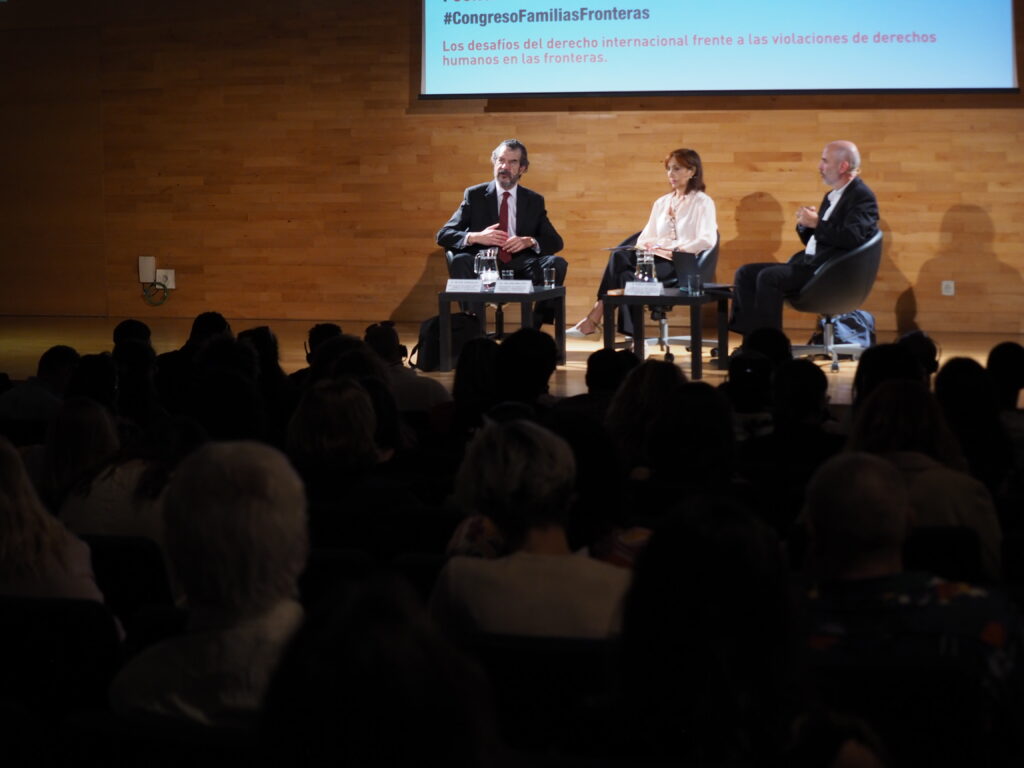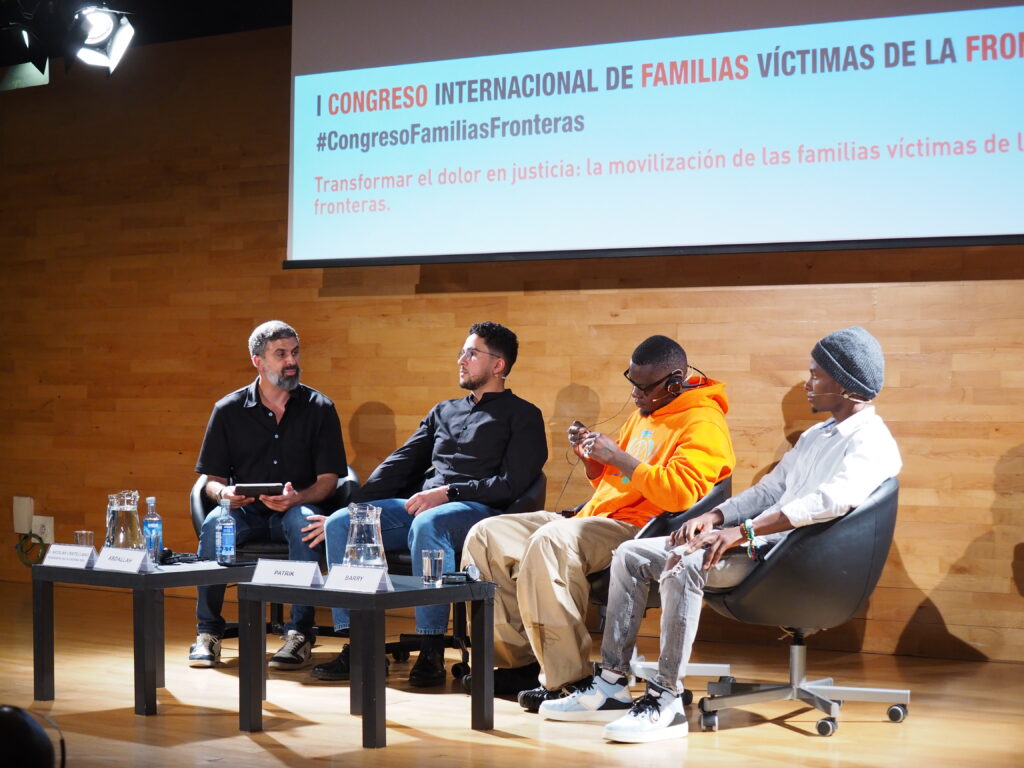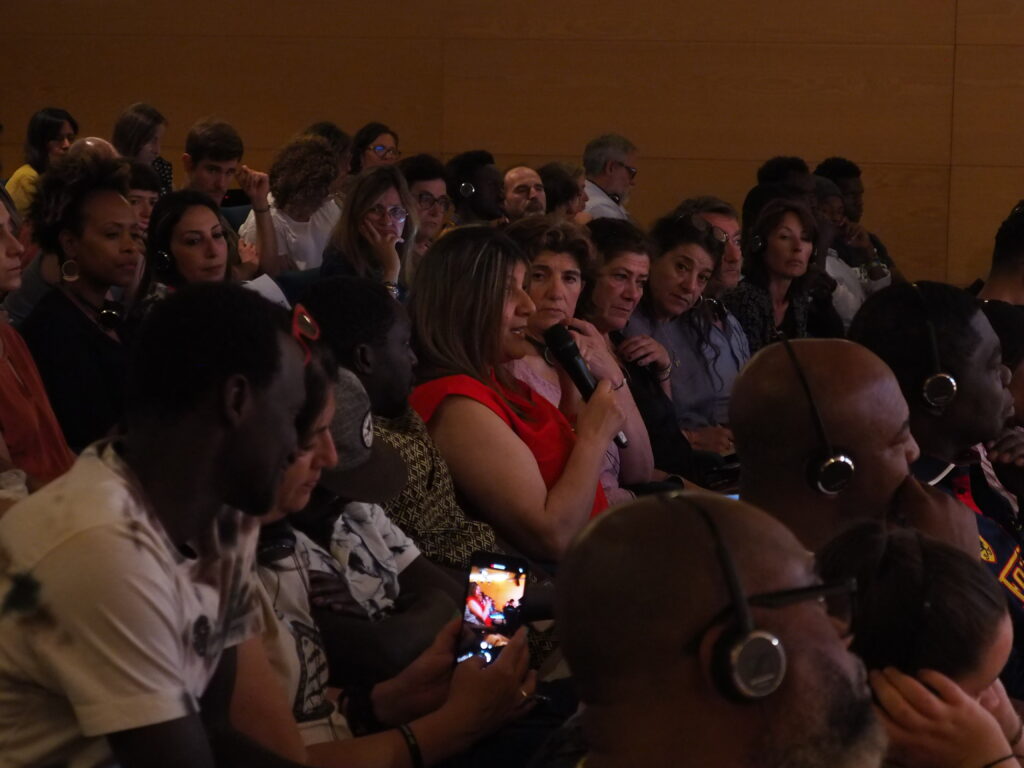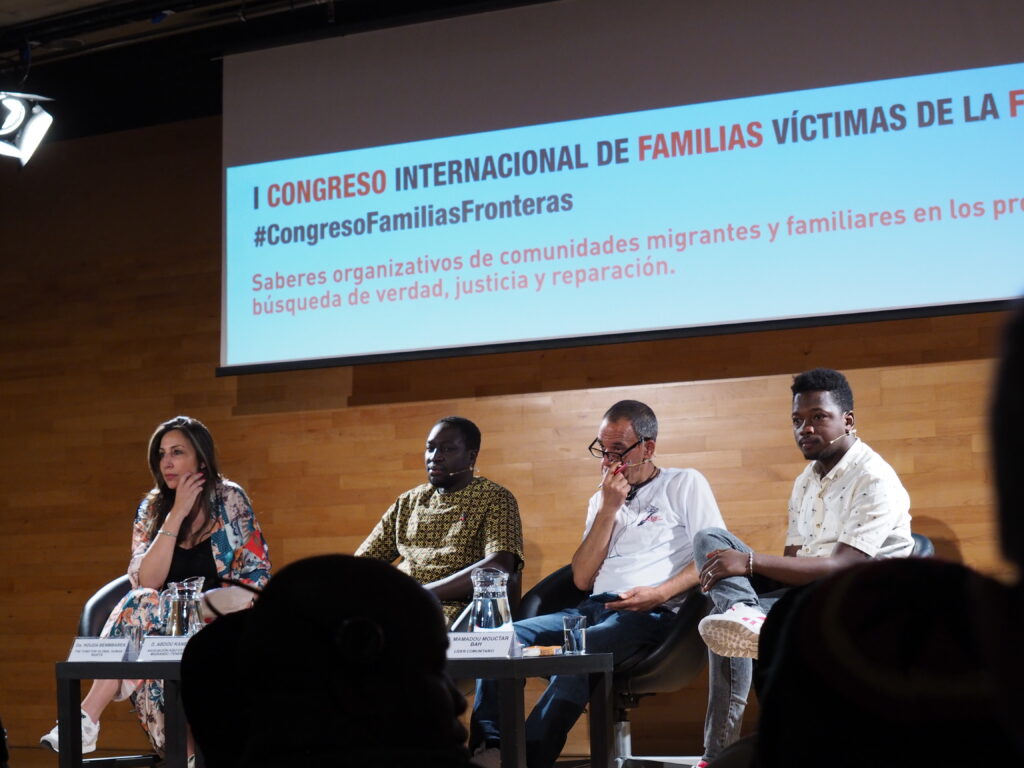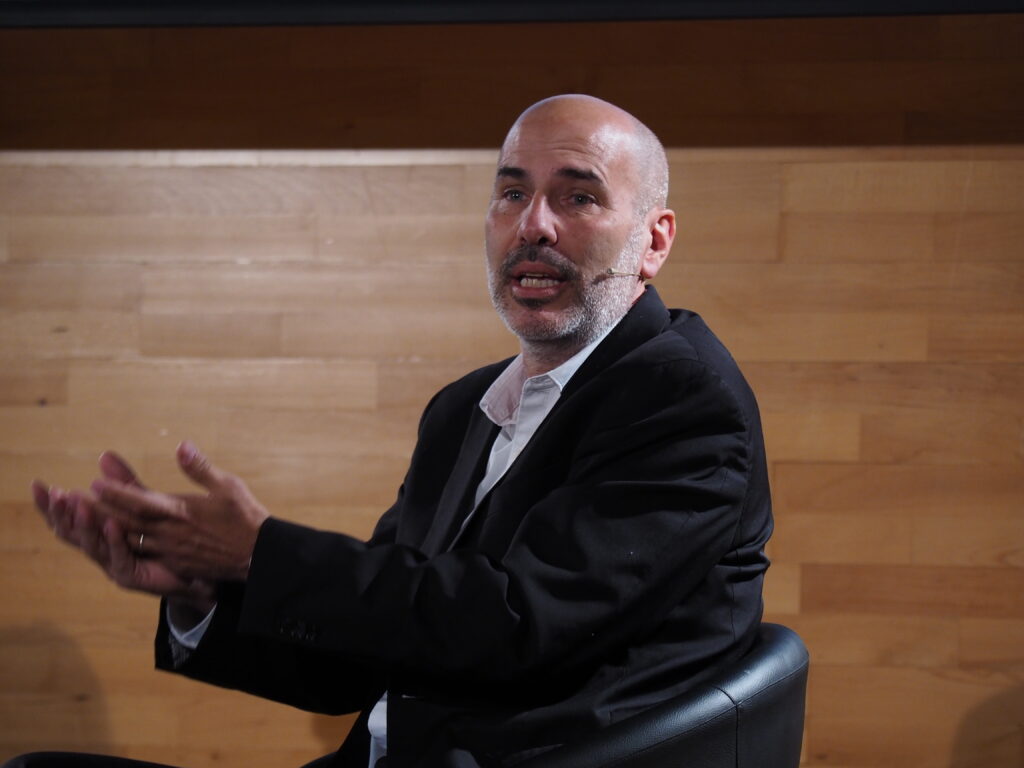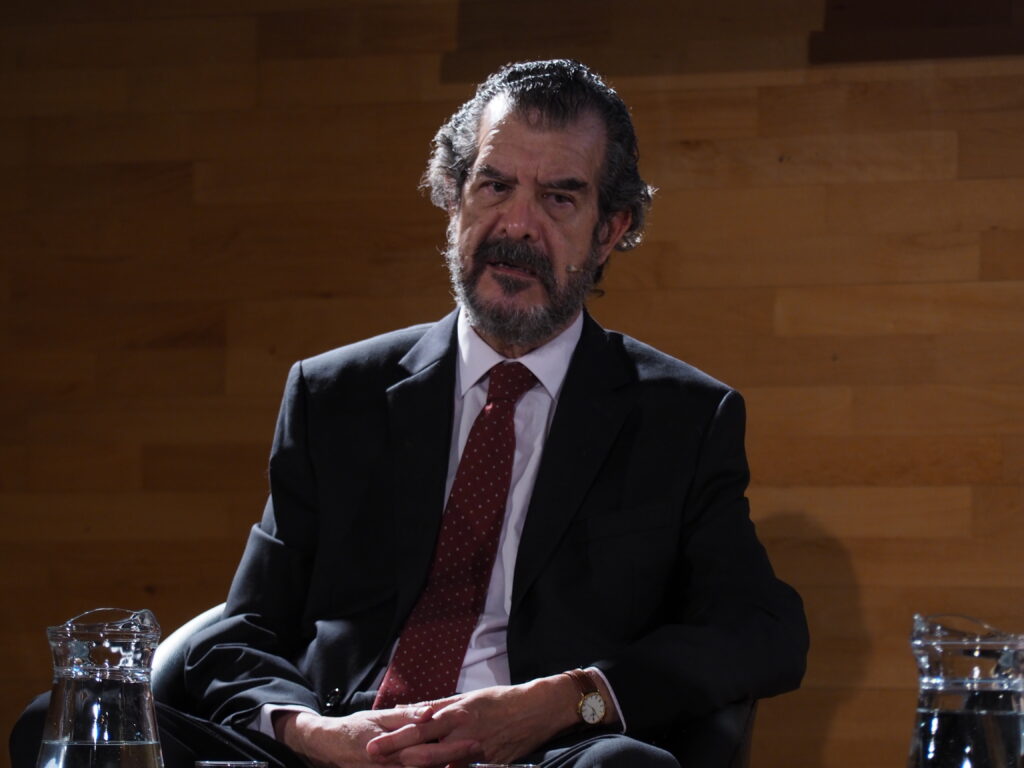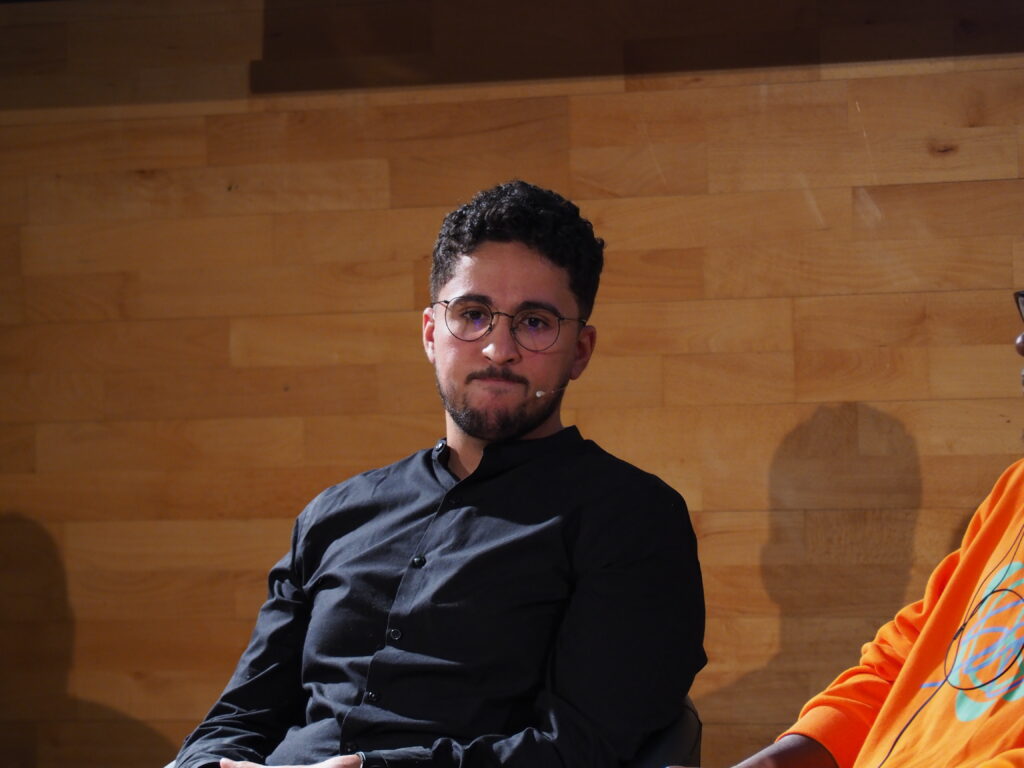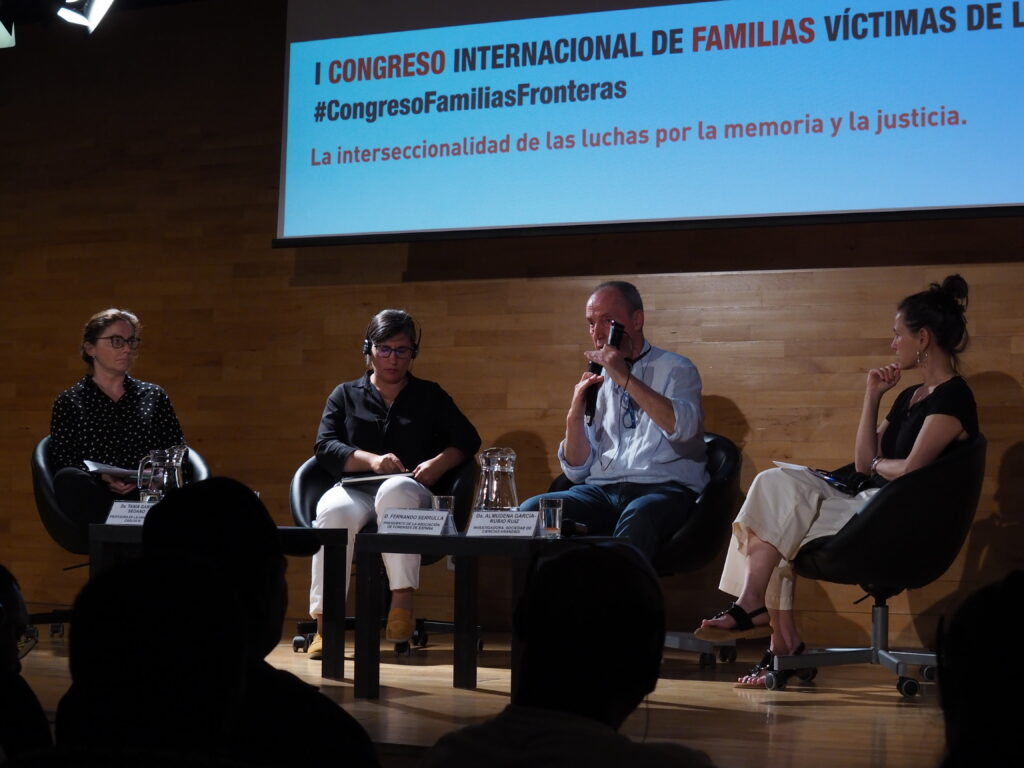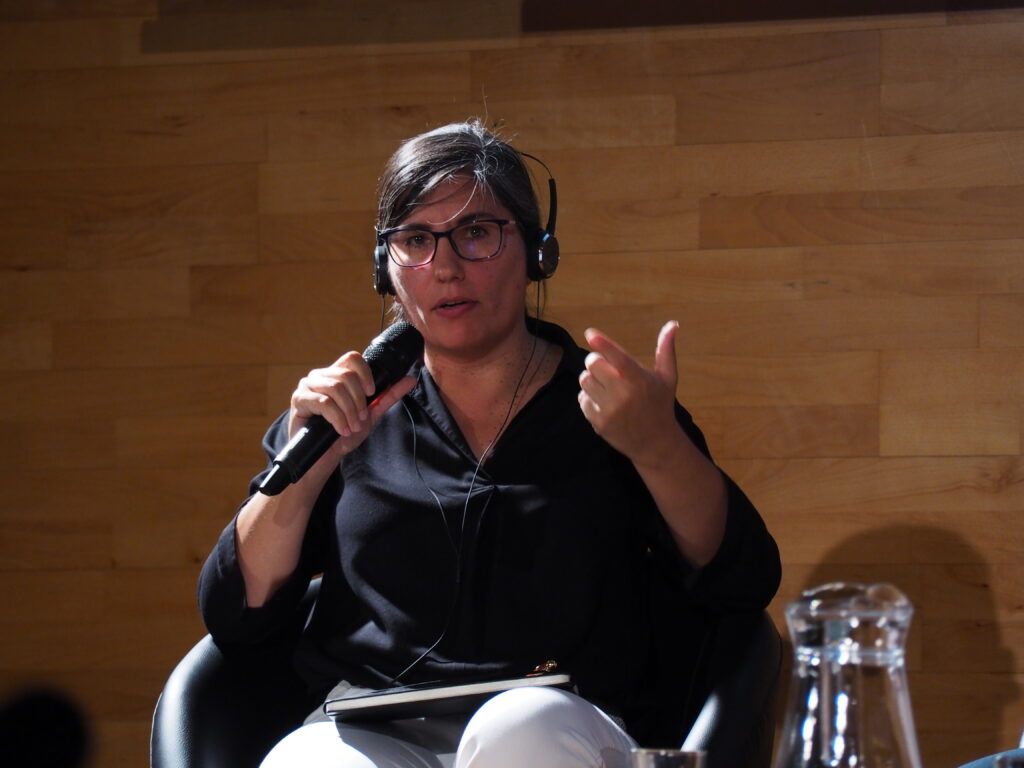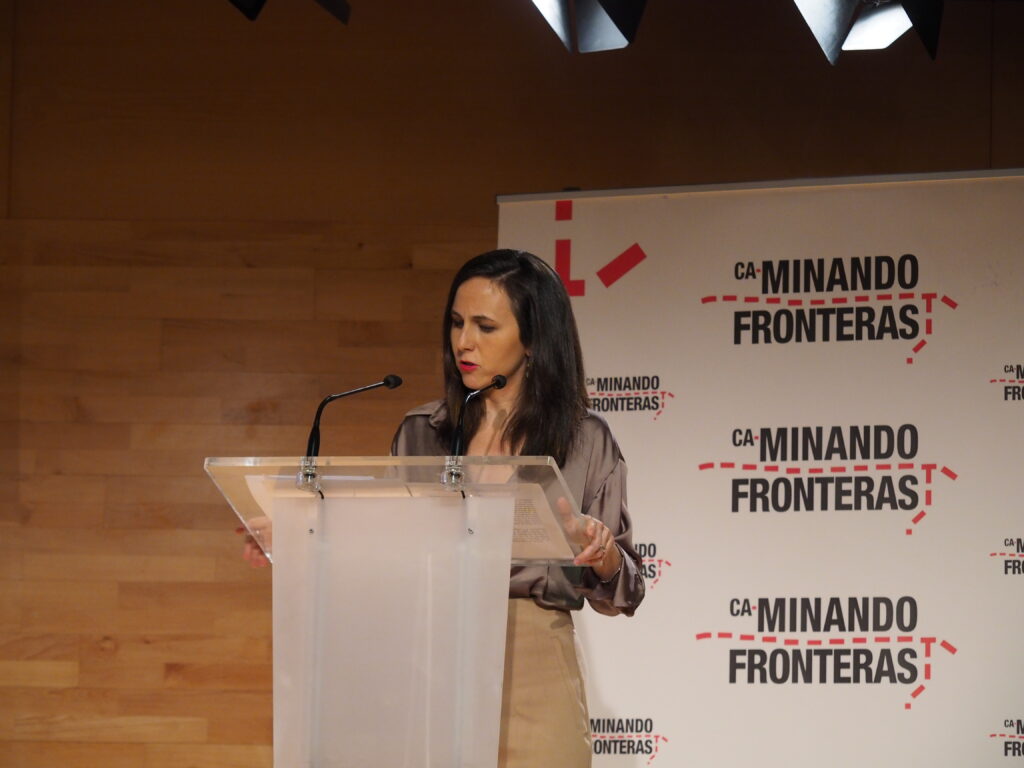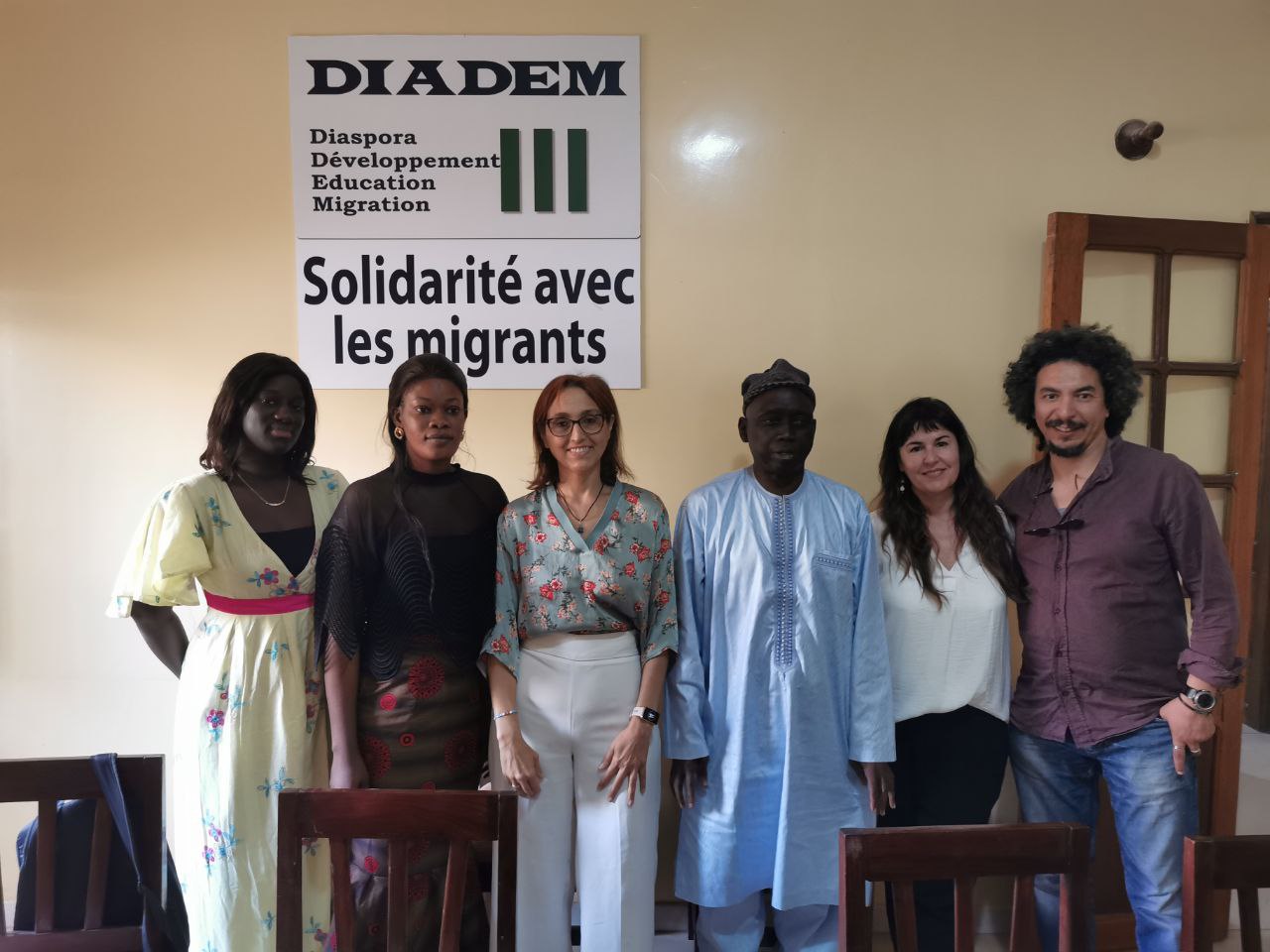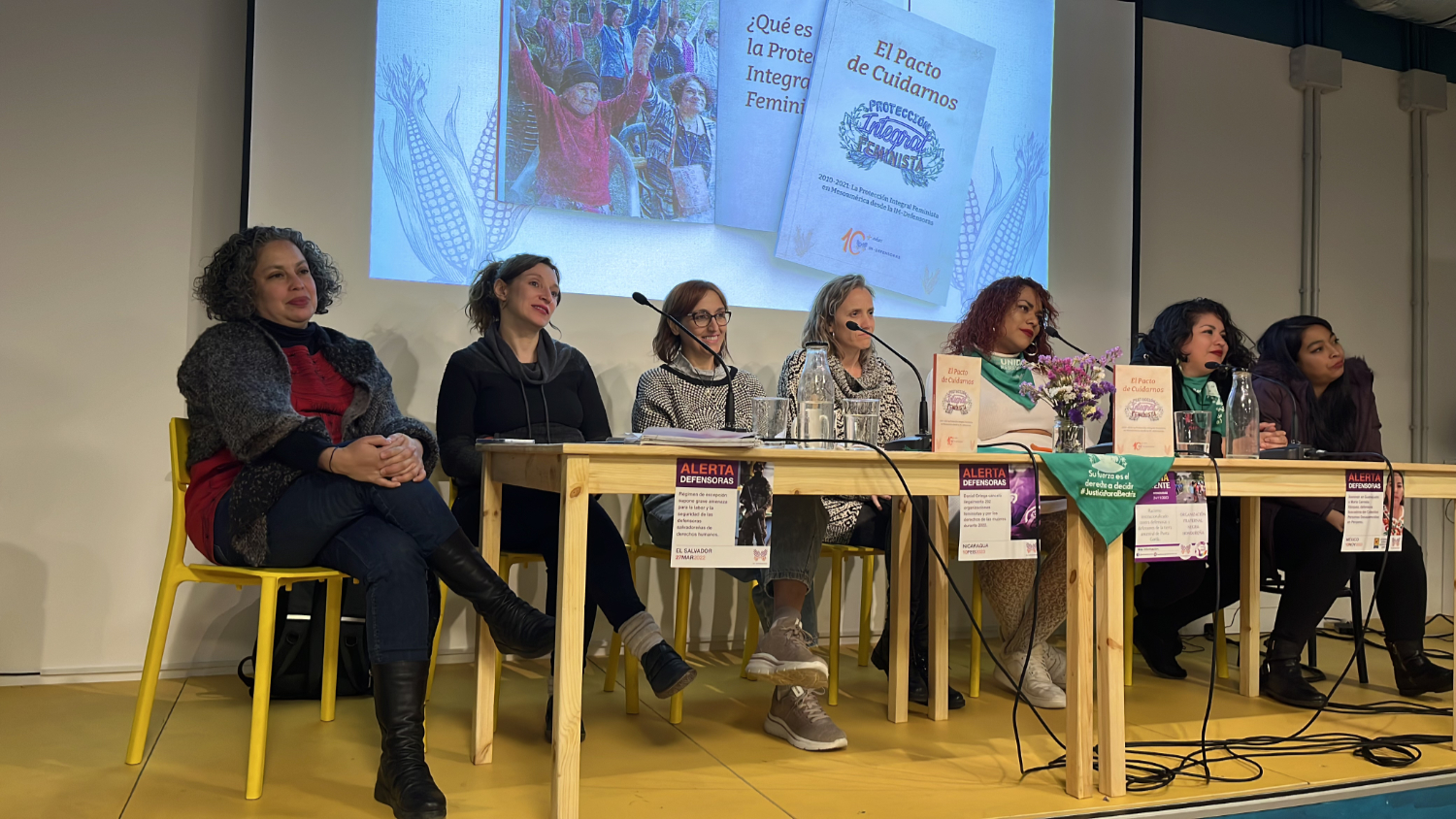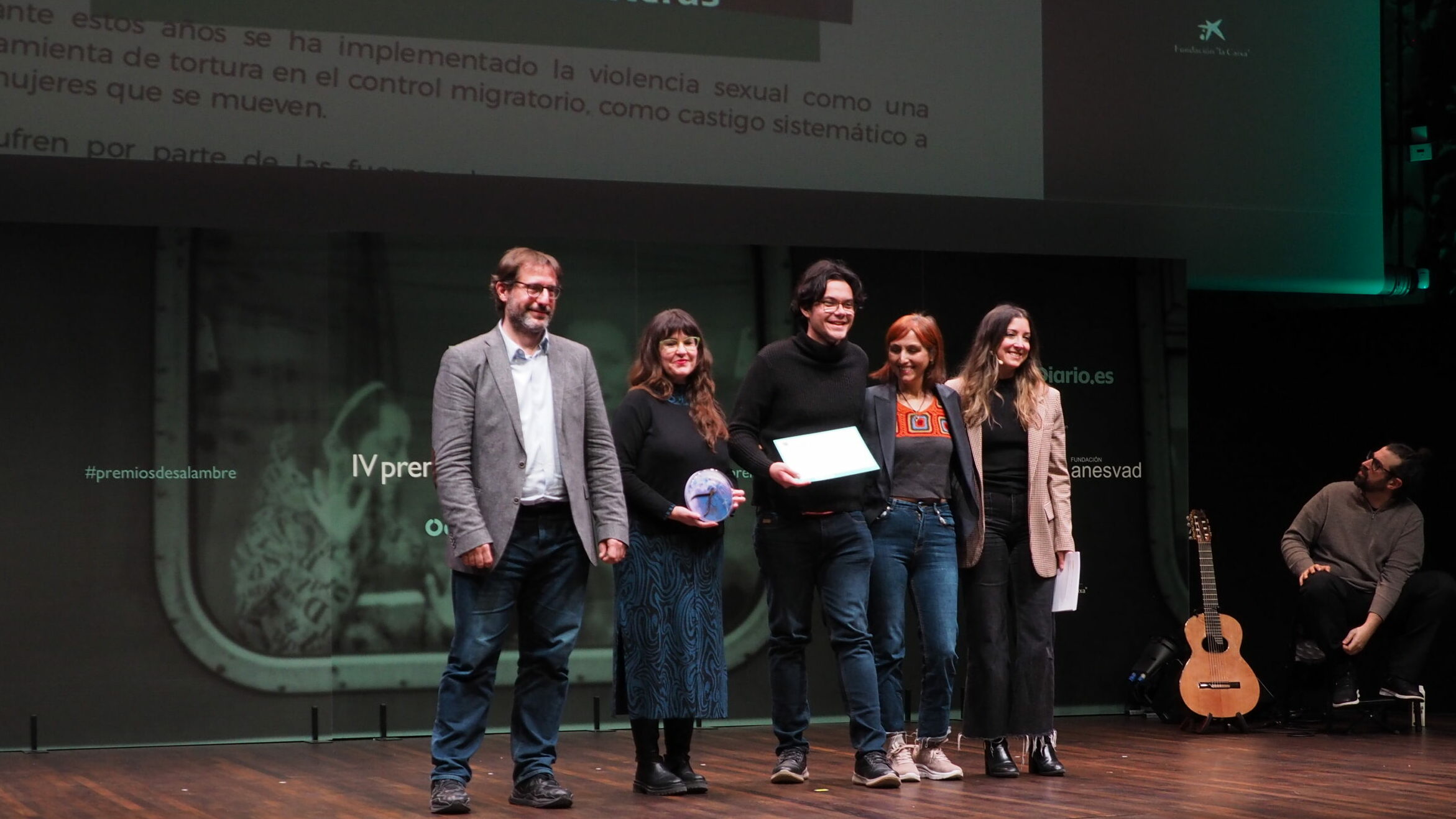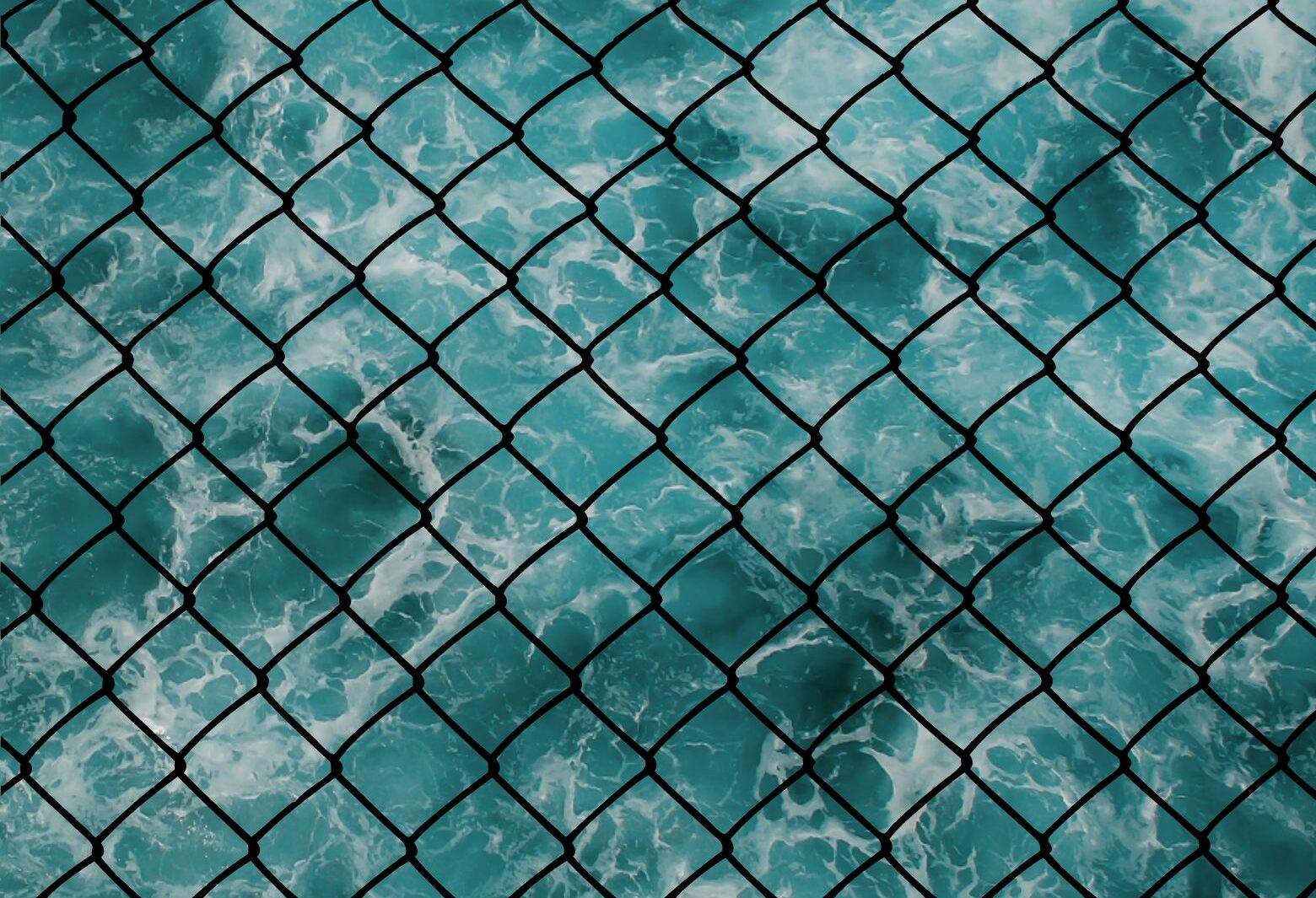2024 marks the 10th anniversary of the Tarajal massacre. A decade accompanying the families of the victims who continue to demand justice in the face of one of the most scandalous and cruel events left by the necropolitics at the borders of the Spanish State.
This year, the Ca-Minando Fronteras collective has joined other organizations to demand respect for the rights of the victims and their families, who continue to demand from the Spanish State the possibility of having access to the bodies of their sons and brothers and to identify them by burying them according to their beliefs.
In Madrid, Douala or Algeciras, we have participated in the various acts of protest and commemoration organized to denounce the events of February 6, 2014, and to honour the memory of the deceased who continue to be re-victimized today.
On Saturday, February 3, we participated in the march organized in Ceuta, where there is a pilgrimage to the Tarajal beach. It is always especially hard to approach the place where the massacre took place, which our organization witnessed at the time, and prepare a report on the facts that contributed to the criminal proceedings.
On Sunday, February 4, the association of the victims’ families met again in Douala to demand their right to visit the graves where their relatives were buried, to be identified with respect for their dignity, and to recover their mortal remains. During the commemoration, they explained how important it is in their culture to have access to the remains of their loved ones to mourn and be able to say goodbye to them. “Let me see my son’s grave. Are you going to deny me that too?” said a father in one of the videos demanding justice and reparation from the Spanish authorities.
On Tuesday, February 6, we began the day at 7:30 a.m., the time when the rubber bullets were fired at a group of defenceless people who were swimming, trying to reach the beach. At the same time, we gathered in front of the Congress of Deputies and played the shocking audio recorded in Tarajal during those harrowing minutes. The sound of the detonations could be heard clearly to show the extreme violence suffered by the victims. The event concluded by placing a candle for each of the 14 victims as a sign of remembrance and commemoration.
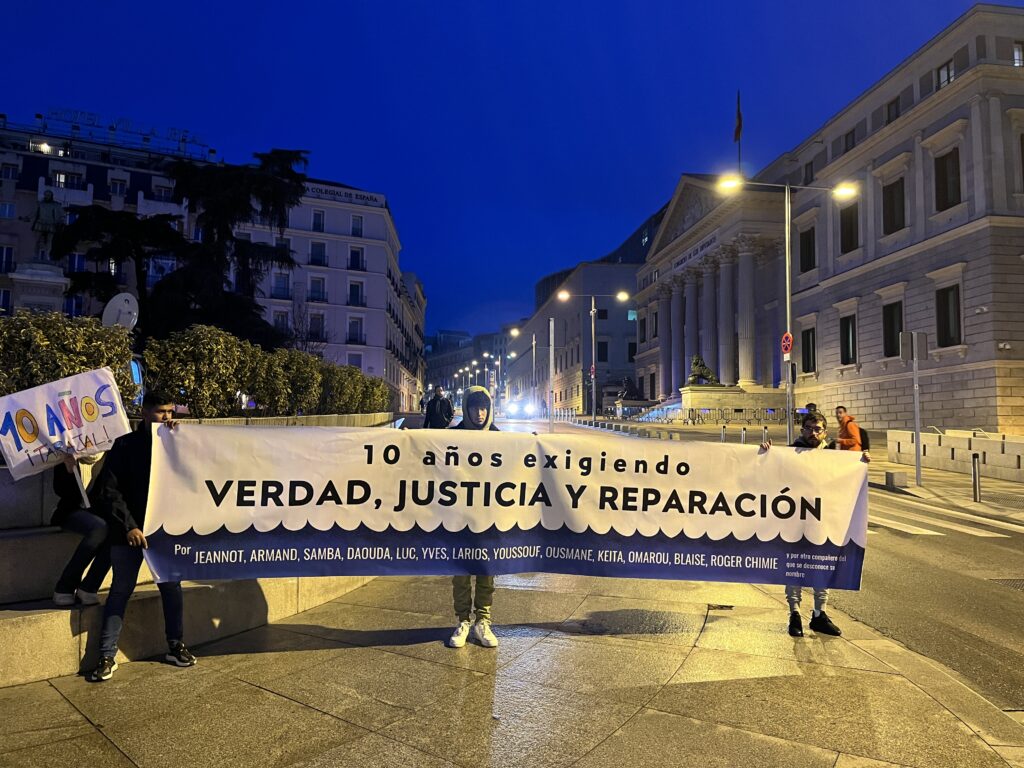
Twelve hours later, at 19:30h, we heard the shots again in the Plaza de Lavapiés, where the message “We do not forget” was written with candles in the centre of the square. After the playback of the audio, several people took the floor on behalf of different collectives to explain the injustices caused by institutional racism in border policies.
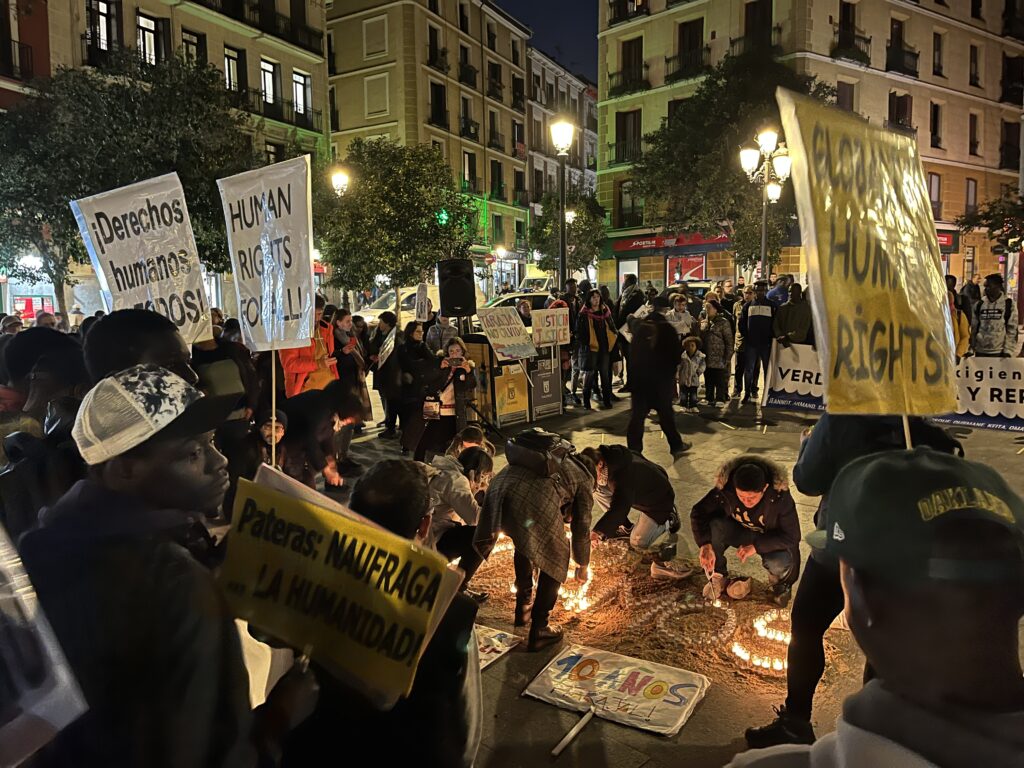
The following day, our colleague Helena Maleno spoke at the European Parliament in Strasbourg before the left-wing groups and held a press conference afterwards. There, she presented our proposal to declare February 6 as the European Day of Border Victims in memory of the massacre. She explained how Tarajal had meant a before and after turning point in the death policies executed by fortress Europe, highlighting the struggle of the families as a future of resistance. Bouyaghi Diambou, the brother of one of the victims of the borders in 2023, demanded processes of truth, reparation and justice from the authorities. Furthermore, he joined the struggle of thousands of families clamouring for defence of life in the border territories.
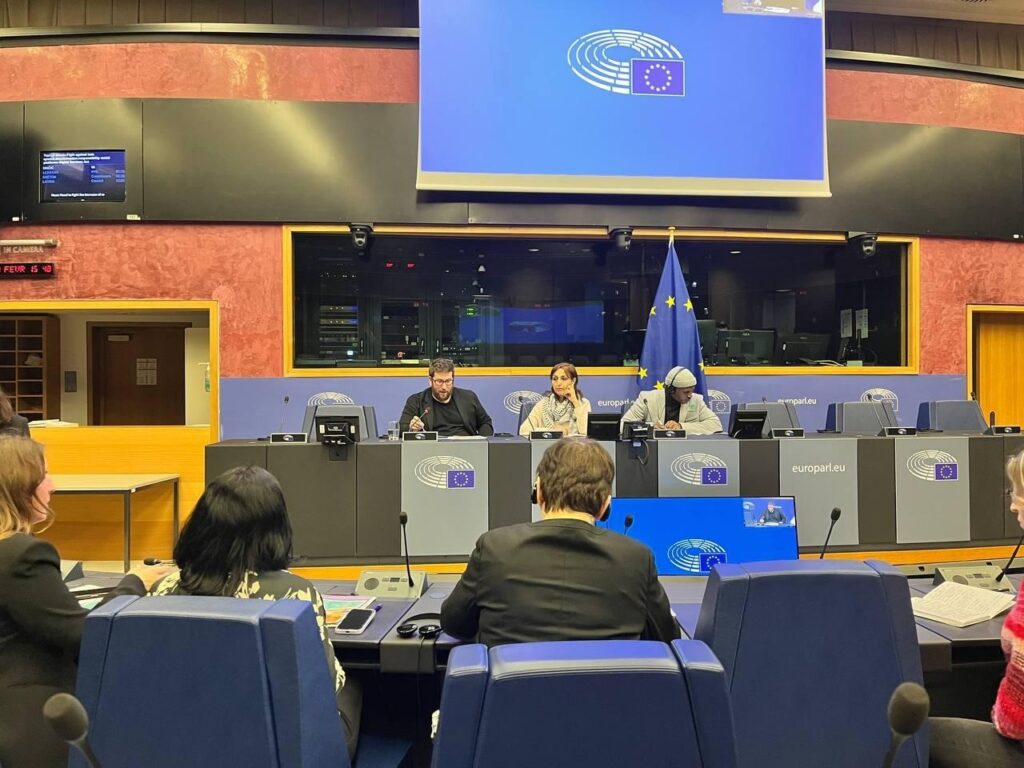
This extensive week of events ended for us with the screening in Algeciras of the documentary “Tarajal, transforming pain into justice”. A work that, to this day, is still as valid as the day we recorded it.
